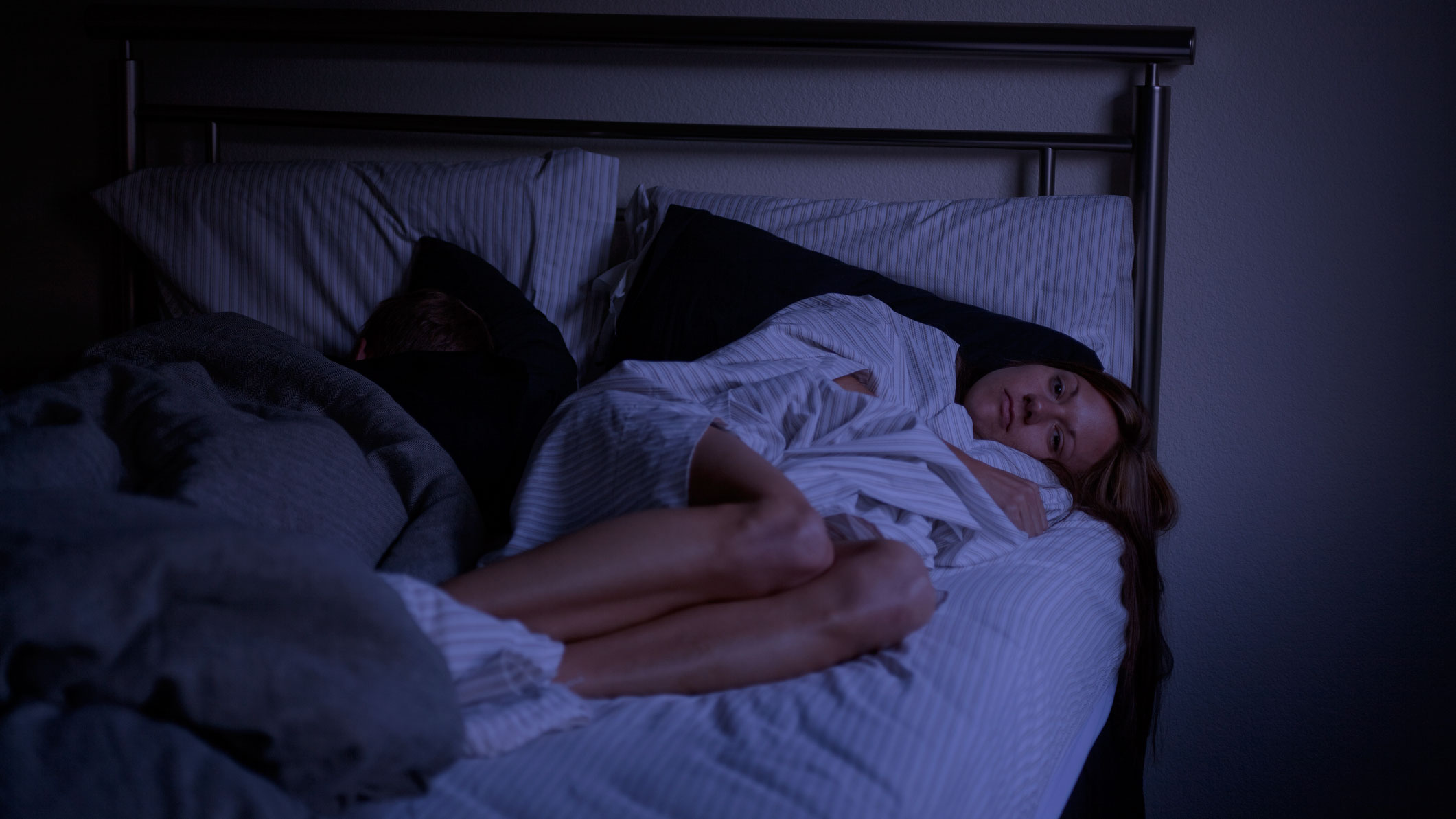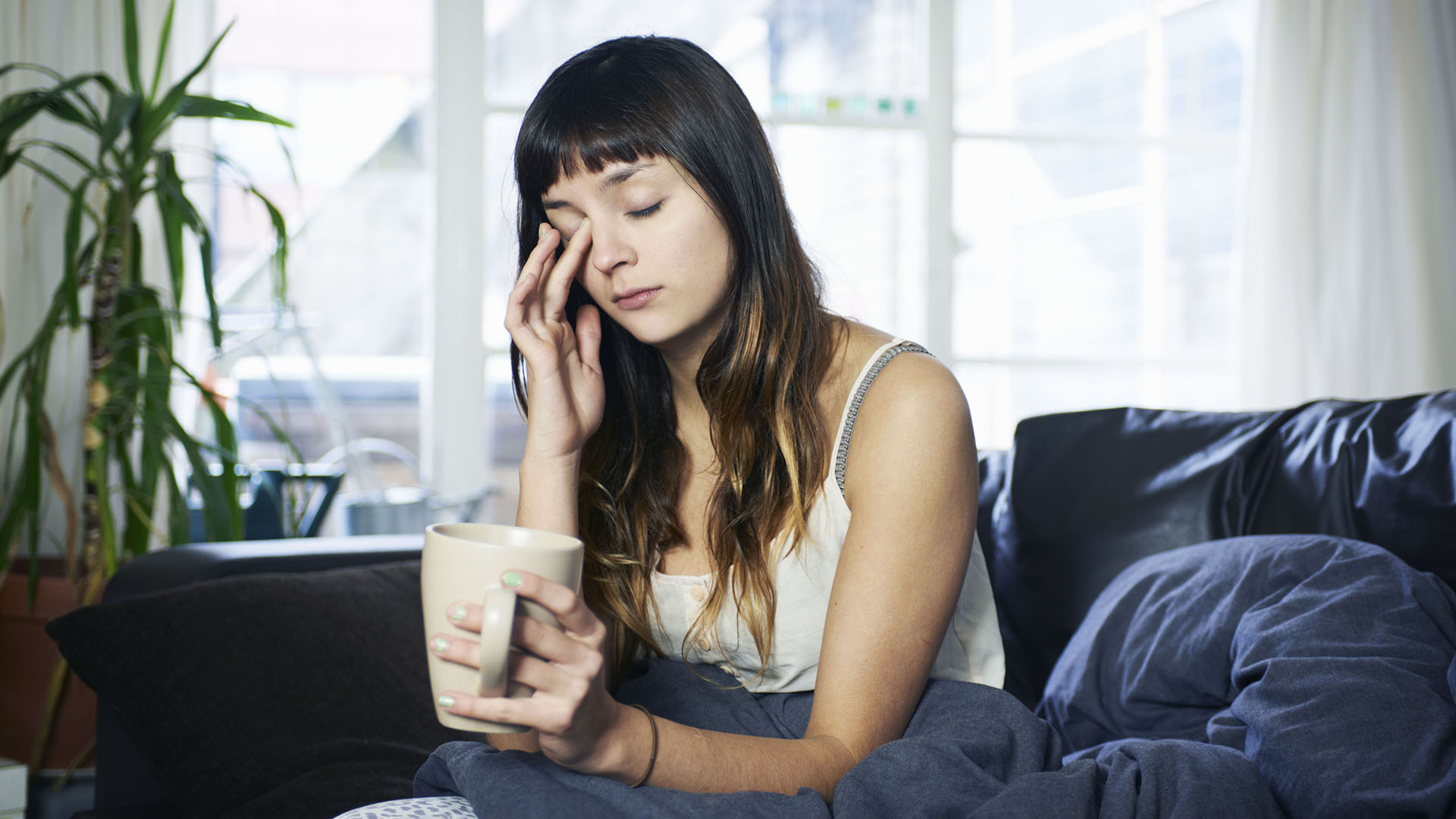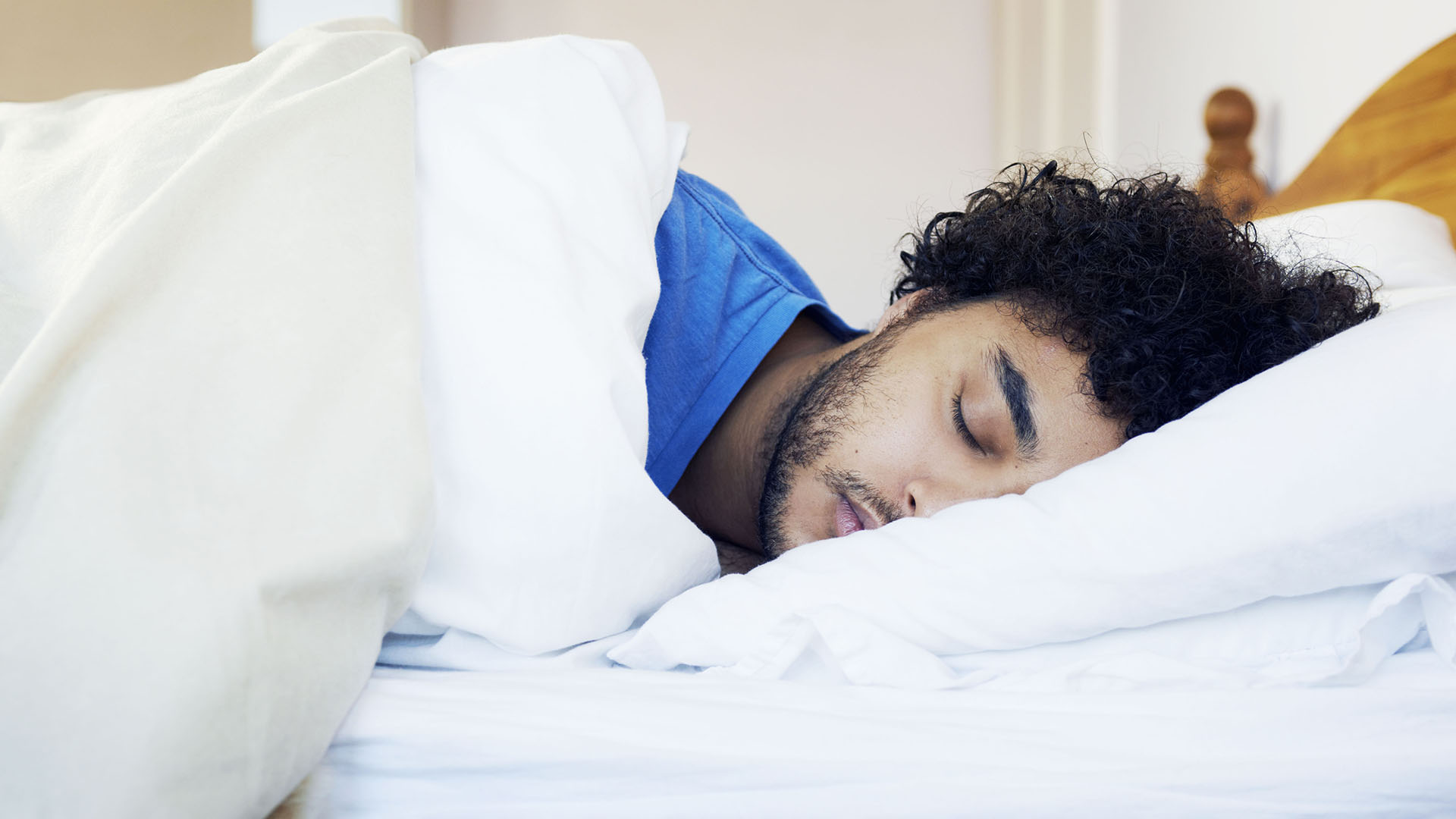Why can't I sleep when I'm tired?
Uncover how to break the cycle of lying awake at night

Hands up if you've experienced the feeling of lying in bed, totally exhausted yet completely unable to sleep? If so, take comfort in knowing that you aren’t alone – sleep issues are very common, and affect around half of us at some point in our lives.
But why can’t you sleep when you’re tired, and how can you solve this frustrating issue? We’ve dug through the research and spoken to sleep expert Dr Lindsay Browning, to find the answers.
Why can't I sleep when I'm tired?
It would make sense that being tired is enough to have you falling asleep as soon as you close your eyes, but unfortunately, that isn’t always the case. “Tiredness is not the same as sleepiness; you can feel physically tired without feeling sleepy,” explains Dr Browning. “Often, when someone has insomnia, they may feel very physically tired, but also mentally wired as if they are buzzing with adrenaline or anxiety, which stops them from being able to fall asleep.”
How do I know if I'm an insomniac?

If you’re struggling to fall asleep despite being tired, then you could be an insomniac. However, there are two main distinctions to be made, depending on how long the sleeplessness goes on for. If the insomnia lasts just a few days or weeks, it’s called ‘short-term insomnia’ or ‘acute insomnia’, but if it goes on for more than three months, it’s called ‘chronic insomnia’.
Understandably, this is the more serious form. “Chronic insomnia is where someone takes 30 minutes or more to fall asleep, wakes up during the night for 30 minutes or more, or wakes up 30 minutes or more earlier than their ideal waking time and feels un-refreshed [over a period of three months or more],” explains Dr Browning.
Why is it hard to fall asleep when you're overtired?
You’re in bed, you’re exhausted, and you’re ready to enter the land of nod – but sleep just won’t arrive. Why? “If you’re overtired, you may be anxious about the importance of needing to sleep, which paradoxically can make it harder to sleep due to the anxiety,” explains Dr Browning.
“Also, if you’ve stayed awake all night you may find that you are more awake the next day, because your circadian rhythm makes you more alert during the daytime.” You can think of your circadian rhythm as your internal body clock, responding to day and night by making you feel awake or tired. “Our circadian rhythm helps to regulate when we feel sleepy and when we feel alert. If we change our bedtime and wake time, then our circadian rhythm won’t be as robust,” adds Dr Browning. This can make it even harder to fall asleep – even when you’re overtired.
Get daily insight, inspiration and deals in your inbox
Sign up for breaking news, reviews, opinion, top tech deals, and more.
Three techniques to help you sleep

Fed up of lying awake even when you’re exhausted? We hear you. Plenty of things can affect how well we sleep, from our diet to our stress levels. Even external factors like a full moon might cause bad sleep. If you're struggling to drift off, try these three lifestyle changes to switch up your routine and help switch off your mind.
1. Stick to a regular sleep/wake cycle
As difficult as it might be when you’ve slept poorly the night before, try to stick to a regular wake time and bedtime, and avoid napping during the day. This will help to keep your circadian rhythm in sync. “If someone is sleeping very poorly, they may start to have a lie-in in the morning or take an afternoon nap to catch up on sleep,” says Dr Browning. While this is definitely tempting, she adds that it will, “perpetuate a sleeping issue because the person won’t be as tired when it is time to sleep at night”.
2. Wind down before bed
As Dr Browning said, there’s a difference between being tired and feeling sleepy. With this in mind, one of the most effective ways of keeping your circadian rhythm in sync, and therefore maximising your chances of falling asleep, is to wind down before bed. “If someone is very stressed in the evening, perhaps working late until bedtime, then they may find it hard to fall asleep because their mind will still be over-stimulated and anxious,” says Dr Browning. So turn off your laptop, put down your phone and do anything that relaxes you, whether that’s reading, yoga, or mindfulness, for an hour or so before bed. The 10-3-2-1-0 sleep method can help you structure your daytime and evening routine for better sleep.
3. Invest in a comfy mattress
One of the best ways to guarantee yourself a good night’s kip? Purchase the best mattress for you; one that's so irresistibly comfortable you’ll want to sink into at the end of the day. “If your mattress is uncomfortable, this will make it harder to fall asleep and stay asleep,” points out Dr Browning. “And if your mattress isn’t supportive enough, then you may find that you will be disturbed by the movement of a bed partner as they naturally move during the night.” Just think of it as an investment in your overall health.

Dr Lindsay Browning is a chartered psychologist, neuroscientist, and sleep expert at Trouble Sleeping. A member of the British Sleep Society and the American Academy of Sleep Medicine, she has published several academic papers and an international self-help book: Navigating Sleeplessness.
Sarah is an award-winning freelance journalist covering sleep for TechRadar. As a long-suffering insomniac, she has written about sleep for many years, from features and product reviews to launching Stylist’s Sleep Diaries franchise. She has written for publications including The Times, The Guardian Weekend, The Independent, Woman & Home and more.
